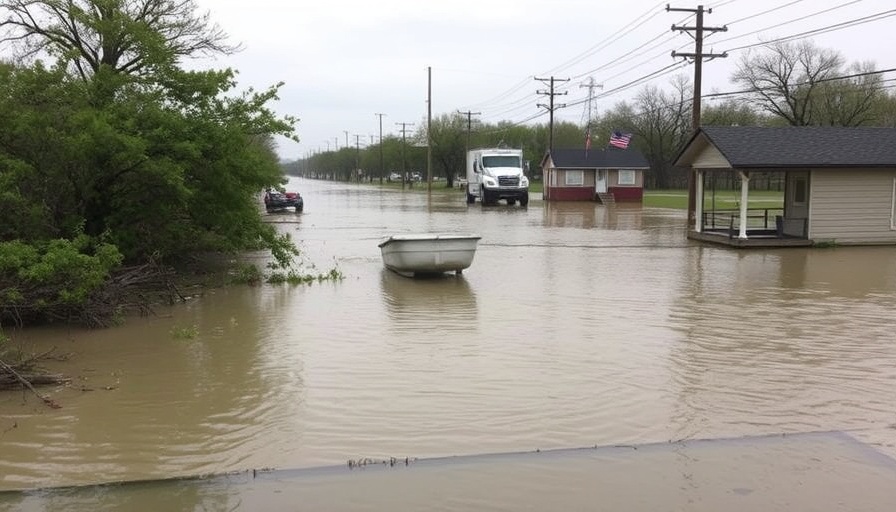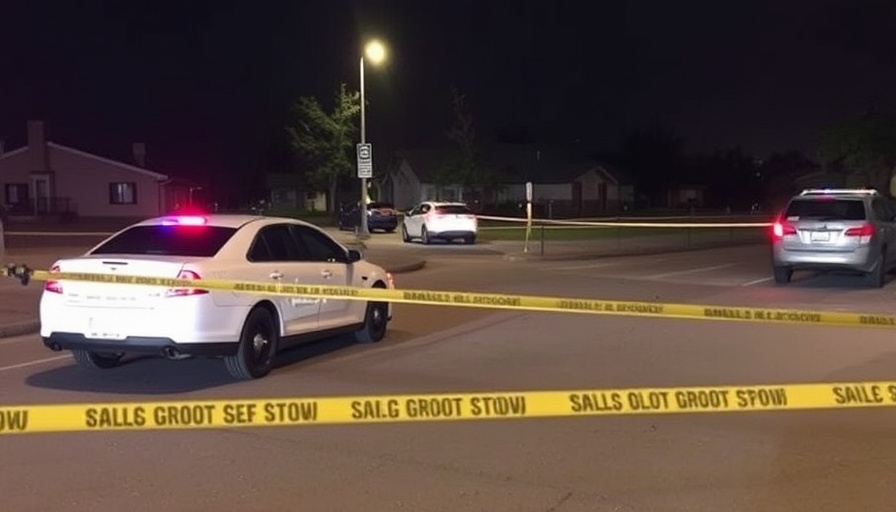
Texas Lawmakers Grapple with the Aftermath of Deadly Floods
As Texas legislators convene today at 9:30 a.m. for a crucial hearing in Kerr County, the dramatic aftermath of the July 4 flooding remains vivid in the minds of many. During this hearing, lawmakers will question local officials about the state’s response to the catastrophe that claimed the lives of at least 136 individuals, including 27 young campers and counselors from Camp Mystic, an all-girls summer camp located near the banks of the Guadalupe River.
The Impact of the Flooding
The severe flooding in Kerr County was not just a series of unfortunate events; it was a catastrophic scenario that involved homes swept away and campers in dire peril. Even now, the effects of this tragedy ripple through the community, affecting countless families and local businesses. In recordings released from the emergency response calls, the panic of residents is palpable, as they sought help amid the chaos. One call still echoes through the community: a woman expressing her fear for her relative stranded at a church camp surrounded by rising waters. These heartfelt moments reveal the chaos during the first hours of the floods and underscore the urgency of a well-coordinated emergency response.
Examining Local Response: Accountability at Last
Today's hearing marks a significant moment in seeking accountability and transparency from Kerr County officials, who have faced criticism for their preparedness leading up to the floods. Various officials have defended their actions, claiming that they had taken necessary precautions, yet the tragic outcomes suggest otherwise. Local residents will have the opportunity to voice their concerns, a step toward ensuring that their stories inform future policies and emergency responses.
Political Dimensions: Flood Relief Amid Legislative Challenges
In addition to addressing the floods, the legislative session is tangled with political conflict. Governor Greg Abbott has added flood relief to the agenda, entwining the recovery efforts with pressing political maneuvers, including redistricting that’s drawing scrutiny from both sides of the aisle. The tension of ongoing debates over redistricting has created a complex backdrop to these vital discussions about disaster preparedness. For many Texans, it feels like an affront that flood relief is being haggled over in the state legislature, covering up missed opportunities for advancement and proactive governance.
What Goes Ahead: Learning from Tragedy
As legislators begin to untangle the lessons from the floods, there are vital insights to be gleaned for future disaster preparedness. Residents are calling for reforms and innovations in infrastructure to withstand the unpredictability of climate-driven weather events. Solutions could include everything from advanced flood monitoring systems to improved community support networks that empower residents to respond more effectively in emergencies.
The Bigger Picture: Flooding and Climate Change
The tragedy in Kerr County does not exist in a vacuum; it is part of a broader narrative about climate change and its impacts on communities across Texas and beyond. As weather patterns become more unpredictable, understanding how to mitigate the risks associated with such natural disasters becomes paramount. This calls for advanced technologies and predictive models to inform communities about impending threats, ensuring that they are better prepared.
Community Voices Matter: A Call to Action
The hearing serves as a reminder that local voices are essential in shaping the future of disaster response and policy. Community engagement is crucial, as citizens can inspire change through advocacy and testimony. Those affected must leverage this moment to push for accountability and transformative policies in flood management and public safety. With informed engagement, residents can influence not just local governance, but also inspire statewide reforms.
The complexity of this situation extends far beyond the immediate aftermath of the flood. It is a clarion call for proactive planning, community solidarity, and foresight as Texas emerges from this catastrophe. The decisions made in the wake of this tragedy will shape the responses for future generations, and it is incumbent upon local leaders and residents alike to ensure that lessons are learned and applied to prevent further loss of life in the future.
 Add Row
Add Row  Add
Add 




Write A Comment